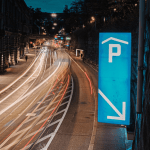Nightclubs have long been synonymous with a vibrant and exhilarating party culture. These nocturnal hotspots offer a space for people to unwind, dance, and revel in the electrifying atmosphere. However, they often come with an accompanying, sometimes unspoken, aspect: substance use. In this article, we delve deep into the world of nightclubs, shedding light on the role of substance use, the associated risks, harm reduction strategies, and the vital importance of partying responsibly in a night club in Praga.
Substance Use in Nightclubs
The relationship between nightclubs and substance use is a complex one. From the moment the neon lights illuminate the dance floor, partygoers may find themselves tempted by the allure of alcohol, recreational drugs, or other substances. These substances can enhance the sensory experience, boost confidence, and intensify the euphoria of the night. Some clubs even thrived on their drug notoriety. Understanding the motivations behind this behavior is essential for addressing the issue effectively.
Risks Associated with Substance Use in Nightclubs:
While the allure of substances can be enticing, it’s crucial to recognize the risks that accompany their use within the nightclub environment. First and foremost are the physical health dangers. Overconsumption of alcohol can lead to alcohol poisoning, dehydration, and accidents. The use of illicit drugs can result in overdoses, unpredictable reactions, and long-term health consequences.
Beyond physical health, substance use in nightclubs can impair judgment and decision-making. This can lead to risky behaviors, including unprotected sex and confrontations with other patrons, increasing the potential for harm. Moreover, the legal ramifications of illicit substance use can have long-lasting consequences, from arrests and criminal records to fines and probation.
Harm Reduction Strategies
Harm reduction is a critical approach to mitigating the risks associated with substance use in nightclubs. It recognizes that while complete abstinence is the safest option, not everyone will choose this path. Therefore, harm reduction focuses on minimizing the negative consequences of substance use.
Education and awareness campaigns play a pivotal role in harm reduction. Nightclubs and harm reduction organizations can provide patrons with information on the risks associated with different substances and how to stay safe. Additionally, harm reduction services may include drug checking, where individuals can verify the contents of substances to avoid potentially lethal surprises.
The Importance of Responsible Partying
Responsible partying isn’t just a catchphrase; it’s a fundamental aspect of creating a safe and enjoyable nightclub experience. It involves not only enjoying oneself but also taking steps to ensure personal safety and the well-being of others.
One key aspect of responsible partying is knowing your limits. Understanding how much alcohol or substances you can consume safely is crucial. Moderation and pacing are key elements in avoiding overindulgence and its associated risks.
Furthermore, responsible partygoers are encouraged to look out for one another. If you notice a friend or fellow patron exhibiting signs of substance intoxication or distress, intervene and seek help if necessary. Ensuring that everyone has a safe way to get home is also a vital component of responsible partying. Designated drivers, ride-sharing services, or public transportation can all play a role in this.
Best Practices for Patrons
For patrons looking to party responsibly, here are some practical tips:
- Know Your Limits: Understand your tolerance level for alcohol or substances and stick to it.
- Stay Hydrated: Drink plenty of water throughout the night to avoid dehydration.
- Travel Safely: Arrange for a designated driver or use rideshare services when possible.
- Plan Ahead: Let someone know where you’re going and when you expect to return.
- Avoid Mixing Substances: Combining different substances can lead to unpredictable reactions and increased risk.
- Trust Your Instincts: If something doesn’t feel right or if you see someone in distress, seek help or intervene.
- Use Harm Reduction Services: If available, utilize harm reduction services like drug checking.
The Role of Nightclub Owners and Staff
Nightclub owners and staff also have a critical role to play in ensuring the safety of their patrons. Responsible practices and policies are the foundation of a secure clubbing environment. Examples of responsible practices include:
- Security Personnel: Employ trained security personnel to handle potential disturbances and intervene when necessary.
- Monitoring Alcohol Service: Train staff to recognize signs of intoxication and limit alcohol service accordingly.
- Safe Spaces: Designate safe spaces within the club for patrons who may need assistance or a quiet moment.
- Partnerships with Harm Reduction Organizations: Collaborate with harm reduction organizations to provide education and services within the nightclub.
- Zero-Tolerance for Drug Dealing: Implement a strict zero-tolerance policy for drug dealing within the establishment. Watch out for drink spiking.
By taking these measures, nightclub owners and staff can contribute significantly to a safer and more responsible clubbing experience.
In conclusion, nightclubs offer a unique and thrilling nightlife experience. Yet, it’s crucial to address the role of substance use responsibly. By understanding the associated risks, implementing harm reduction strategies, and promoting responsible partying, we can enjoy the vibrant nightlife while prioritizing health and safety. Nightclubs can continue to be places of excitement and celebration, as long as we remember to look out for ourselves and each other.



